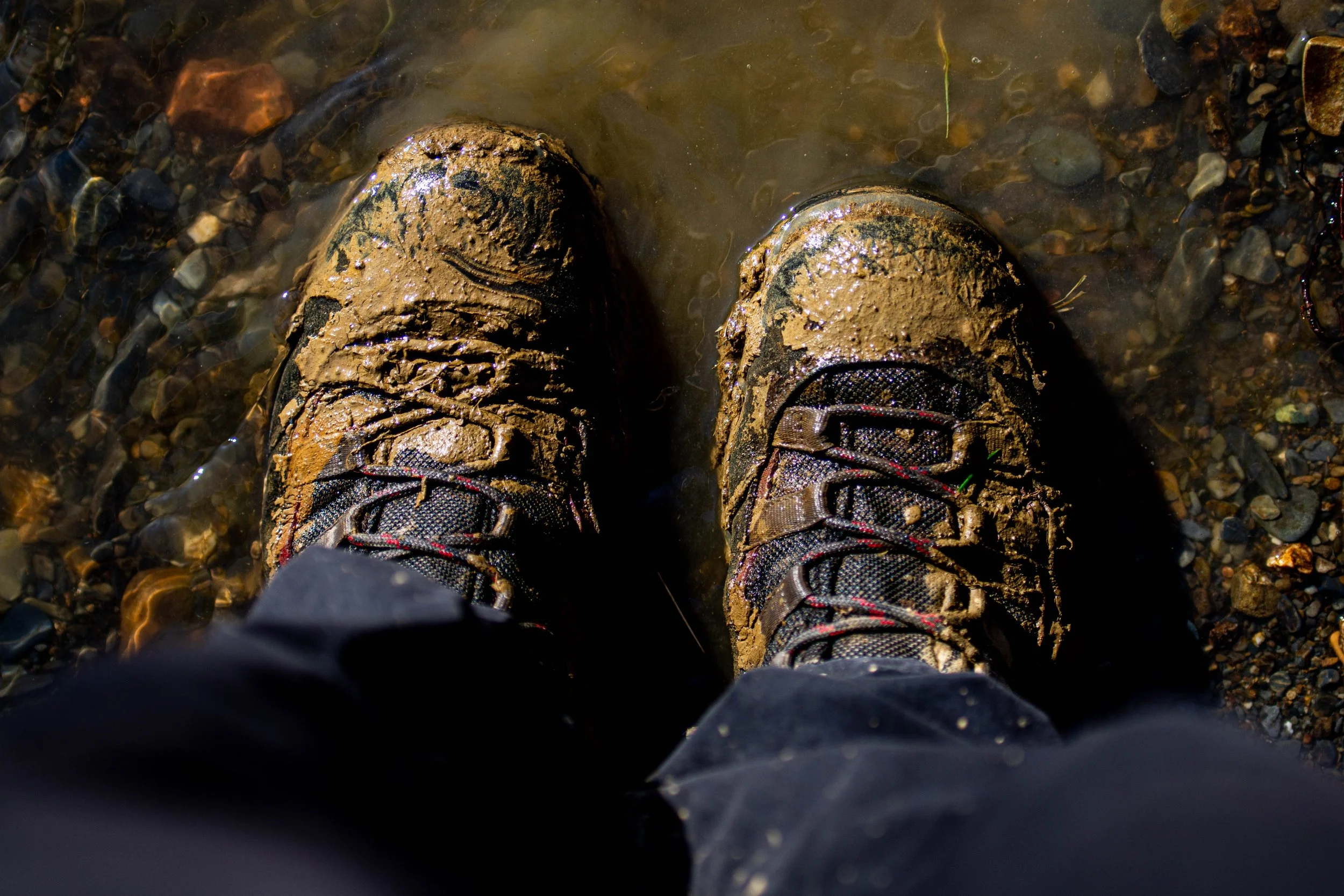Muddy Feet
My daughter had not returned. It was late, so I stepped out the front door to watch and wait for her return. I spied her as she ambled down the street, reluctant to return home, it seemed, by her pace. I ran up the street to meet her. She flinched, unwilling to let me gather her into my arms, and truth be told, I flinched, too. She’d gone where she wasn’t supposed to and did what she’d known not to do. Her feet and pants were covered with mud from the nearby, forbidden, dangerous wetlands. Her face reflected her misery and remorse at what she had done and the consequences. I held her gaze, hiding my anger toward her disobedience while showing relief at her safe return.
Had others seen her in this state? A wave of regret washed over me as I realized that I was as concerned as what others would think, of her, of me, as that she was home and needed my ministrations to be made clean, the word, of course, derived from the same root as the word ministry. We hustled into the house, and I held my tongue. I didn’t ask her why she’d gone out of bounds or point out that this mess was the consequence of that action—a consequence that other people would have to help her clean up.
Instead, in a moment of literal inspiration, I led her to the washroom to wait while I brought her a comfortable pair of clean sweatpants. After she changed, I soaked a washcloth in warm water and knelt to wash her feet. Say nothing, the Holy Spirit prompted me, and I obeyed, glad He’d made it so clear. We didn’t speak, but the silence was not empty, as I felt the presence of the Spirit among us, and I think my daughter felt it, too.
After her feet were clean and I slipped some fresh socks on her, she said, “I’m sorry, Mom,” and reached up for a hug. I hugged her back. “I love you,” I replied, thankful that the Lord had modeled how to respond and reminded me on the spot so I could act out of divine wisdom and not human emotion. Nothing more would ever need to be said. My daughter already knew and acknowledged that what she’d done was not right, and I knew she wished it undone; although I couldn’t help with that part, I could help her clean up the mess.
Like the wayward son in Luke 15, all of us have gone astray, have tiptoed, strolled, and sometimes ran into the places forbidden to us, places that promise freedom and pleasure but instead cake us with mud. Like the father in the Luke passage, our Heavenly Father waits for our return, runs to meet us, takes our torn garments, and dresses us in fresh clothing, worrying not at all if others had seen us in our present, unholy mess.
“Do you understand what I have done for you?” Jesus asks us, and the answer truly is no. We can’t yet understand the breadth, depth, and width of Hhis love for us, the fullness of consequences avoided, and His manifest examples of care and concern. But we do know that we’ve done wrong; we don’t like the feeling of crusted guilt that comes with sin, and we need someone to help us clean it off. Jesus fully and lovingly does so and directs us to do likewise.
“You call me ‘Teacher’ and ‘Lord,’” Jesus says in John 13:13–17, “and rightly so, for that is what I am. Now that I, your Lord and Teacher, have washed your feet, you also should wash one another’s feet. I have set you an example that you should do as I have done for you.”
I don’t know for sure that my daughter “learned a lesson,” but I do know that she felt my love, and that is what changed her. In the most powerful of ways, on that day, I more completely comprehended Christ’s love for me, and I’m not afraid to run to Him to be made clean and whole.
–Written by Sandra Byrd. Used by permission from the author.

